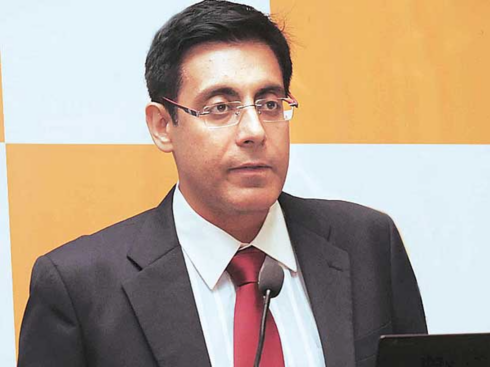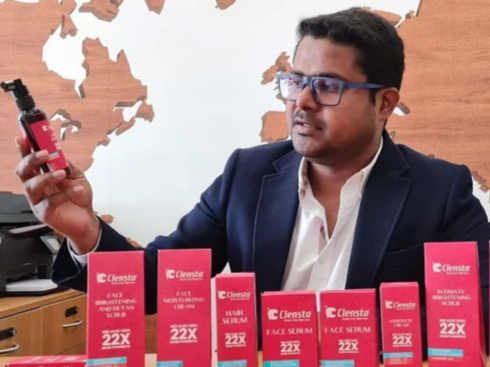
The need for affordable, inclusive and scalable healthcare solutions for our country is more imminent now than ever before. Let’s start with some facts: India has a lagging Doctor: Patient ratio of 0.7:1000 compared with WHO’s average of 2.5:1000. In rural India, the ratio is 1:30000. The Indian government spends less than 1.3% of the GDP on healthcare. With an increasing population base, more than 50% of India’s population under the age of 29 years, and a widening demand-supply gap in service delivery, we are staring at a future riddled with challenges.
On the positive side, the widening demand-supply gap across the specialties and sub-sectors of the healthcare and life-sciences landscape in India is paving the way to adoption of tech-based, non-conventional solutions. The inspiration for several of these innovations sprang from the need to build low-cost, faster and accurate versions of conventional approaches to diagnostics and therapeutics. However, over a period of their development, adaptation and acceptance, they have opened up novel approaches of detection, curing or management of these ailments. Examples include low-cost efficient devices for measuring blood sugar, cancer diagnosis among many other fields.
With the drastically falling ratio of medical experts to the population base, it is imperative that we find means to reduce the distance as well the time lag between various stakeholders in the community. Technological innovation aided by novel business models is one clear way to ensure that healthcare reaches the grassroots level. Here are examples of three promising startups working towards making healthcare diagnostics available, accessible and affordable for the masses in the country.
Creating accessibility through design & innovation
Breast cancer has replaced cervical cancer as the leading cause of cancer deaths among women in India; close to 50,000 deaths are reported every year due to breast cancer. 1 in 28 women in India (1 in 22 in rural areas) are likely to develop breast cancer in their lifetime. 60-70% of deaths from breast cancer can be cured if detected and treated early. Unfortunately, less than 1% of the Indian women are screened for breast cancers given the high cost of lack of affordable access to screening facilities and radiologists across the country.
UE Lifesciences has developed a portable radiation-free, easy-to-use, intelligent breast-scanning device. This device, coupled with a mobile app, can be used by a lightly trained healthcare worker for performing breast scan in rural areas. Not only does this innovation make breast cancer diagnosis affordable – as low as Rs 100 per scan – but it also extends the reach of radiologists to patient segments that otherwise had to wait for weeks together to obtain a credible diagnosis. This can reduce the burden of subsequent treatment – financial, physical and emotional – on the patients’ family in addition to increasing the survival rates.
Providing opportunities for preventive care
Since the turn of the current decade, India has emerged as the Diabetes capital of the world; as of 2015, India is a home to more than 63 million diabetics. Diabetic retinopathy (DR), a condition characterized by clouding of the vision due to damage of the tiny blood vessels nourishing the retina of the eyes, is a major cause of blindness among the working class; more than 40 million Indians are suspected to be prone to DR as of 2015. In a country that has less than 9,000 ophthalmologists, coupled with the increasing incidence of diabetes even in the lower socio-economic segments of the society, this patient base is finding it increasingly difficult to access quality eye-care services in their neighborhoods.
Welcare Health Systems has developed an innovative scalable business model of tele-ophthalmology by extending the limits of expert eye-care to the rural geographies of the country. Welcare is commercializing Trinethra, an intelligent table-top eye-scan device developed by Forus Health and creating a network of eye-clinics connected to a central reporting hub. Welcare establishes an eye-scan facility, through Trinethra, in existing diabetes and GP clinics in the rural areas. With a price point as low as Rs. 180, the Trinethra device can be operated by a healthcare worker or junior technician and is capable of fetching and transmitting high quality images of the retina which can be remotely interpreted by an ophthalmology expert.
Removing resource constraints through LOC devices
India has more than 100,000 diagnostics labs (growing at 16% per annum) and 90% of the market is held by the unorganized players. 30% of these labs deploy manual methods of diagnosis and lack resources to obtain a credible and timely opinion at an affordable price point. 60% of the deaths in the lower-income earning segment are attributable to infections.
OmiX is developing a portable intelligent connected lab-on-a-chip (LOC) microfluidics device capable of accurately detecting vector-borne infections in a drop of blood. Analogous to the glucometer device, which, measures Random Blood Sugar (RBS) by the means of a disposable chip, this device makes use of a disposable bio-chip to diagnose the presence and identity of a pathogen DNA in a patient’s blood sample. This device promises to take high quality accurate tests to the rural patient base at a price point of Rs 500 whereas Real-Time-PCR (RT-PCR) tests of similar accuracy cost upwards of Rs 2,500 in an established diagnostic facility.
According to a recent report by IBEF, the Indian healthcare sector is growing at a 15% CAGR to reach USD 158.2 billion by 2017. With rural India accounting for over 70% of the population, there is a significant scope for startups to enhance healthcare services and for investors help them get to the market.
Unitus Seed Fund is organising StartHealth Competition-3, a pan-India challenge that aims to find, nurture and fund startups that are driving inclusive healthcare solutions through innovation. The winner will receive cash prize of INR 10 lakhs and both the winner and the runner-up will get an opportunity to pitch for a direct entry to Unitus Seed Fund StartHealth Investment Program.


























